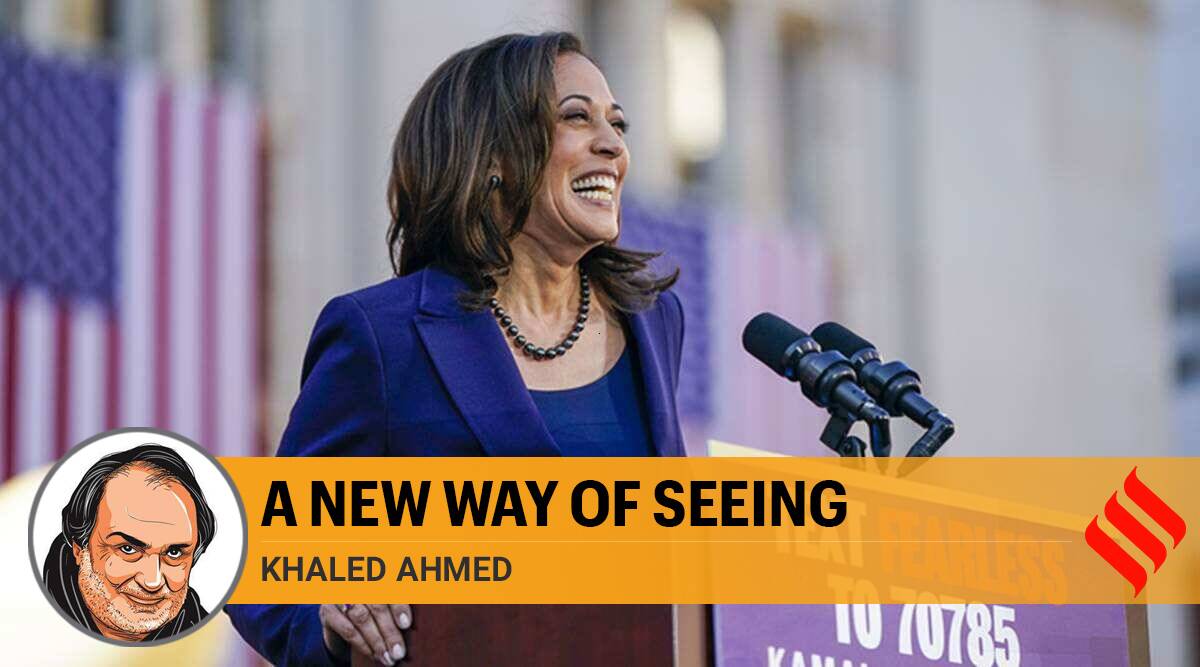
SOURCE: ENS
Kamala Harris will become the first woman Vice-President of the US; she is also the first South Asian to reach such prominence. She is the first woman and first “black-heritage” US Vice-President-elect. At first glance, she has a sharp wit that is strongly expressive of her views on the problems of race and democracy in America. Some Pakistani Americans who think that she would push the Biden administration towards a more pro-India policy have been reported as actually voting for Donald Trump.
It would be tragic to place such a narrow gloss on an American woman of great political distinction. Akbar Ahmed and Amitav Acharya, writing in Lahore’s Daily Times (November 14) have made a wise “correction”: “But the election of the first South Asian Vice President may provide an opportunity for the South Asian diaspora to move past its traditional rivalry and look at US relations with the two nations outside of a zero-sum prism.”
After long years of watching world affairs through the ideological lens of the Democrats in the US, she is bound to be different in her worldview, in contrast to the prisms in India and Pakistan. She will first of all be loyal to her own country, the US, and will have to pursue the current Democrat view that the US should move close to India as a part of its China policy. (Democrats tended to lean to India during the Cold War when Republican anti-Soviet pragmatism tended to favour Pakistan.)
Given her intellect, Harris, while following Biden’s lead, is expected to look at South Asia as a place where a fourth of humanity lives in states that tend to treat one another not so well, ignoring the good times they could enjoy by living cooperatively under an integrated South Asia economy. Her mother was from a small village in Tamil Nadu that, together with Kerala (literacy rate 94 per cent), routinely produces gifted Indian citizens. Pakistan is not similarly gifted. One can say that Pakistani nationalism — anti-India under a religious ideology — is less intellectually interpreted by Pakistanis than that of India. However, people of intellect in both states are able to transcend the narrow intellectual poverty of nationalism.
Opinion | Kamala Harris’ victory will have a deep impact on India-US affinities and strategic partnerships
Ahmed and Acharya are hopeful and point to past rare examples of a “South Asian” identity: “In the past, when Indians and Pakistanis have joined hands on a common project, they have made significant contributions to the advancement of knowledge and policy. One can quote one example of the partnership between Pakistani Mahbub-ul Haque and Indian Nobel Laureate Amartya Sen. As students of economics at Cambridge University they forged a life-long friendship that redefined the paradigm of development. The UN’s Human Development Index was born out of this”. Yet another example listed is: Pakistani Nobel winner in Physics, Abdus Salam, who was once a fellow at Princeton, and Indian physicist Yogesh Pati (who spent much of his career at the University of Maryland), worked together to develop Pati-Salam theory of unification in particle physics.”
The factor which comes to the fore when you encounter Harris is her sharp wit and her capacity to engage in rational argument. One may be forgiven for attributing this to, first, her being a woman who thinks differently from a man, and second, because of her South Indian origins. She comes from South India, away from the north of the Subcontinent, where nations are fighting a never-ending war. She is more likely to think of a new paradigm for South Asia, a merger of peace rather than warlike separation.
Harris is an American growing up in a milieu where racism was the first battle she had to fight. She is sure to look at the plight of human rights in both India and Pakistan under mounting religious discrimination. She is sure to know the ideological trajectory of Pakistan from Jinnah’s hopeful beginning to today’s religious extremism, which the state allows through the law against “blasphemy”, doling out the “minimum” punishment of death even when blasphemy is committed through “innuendo”. She will surely look at the problem of Hindutva in India and think of the much-needed political “correction” in South Asia.






